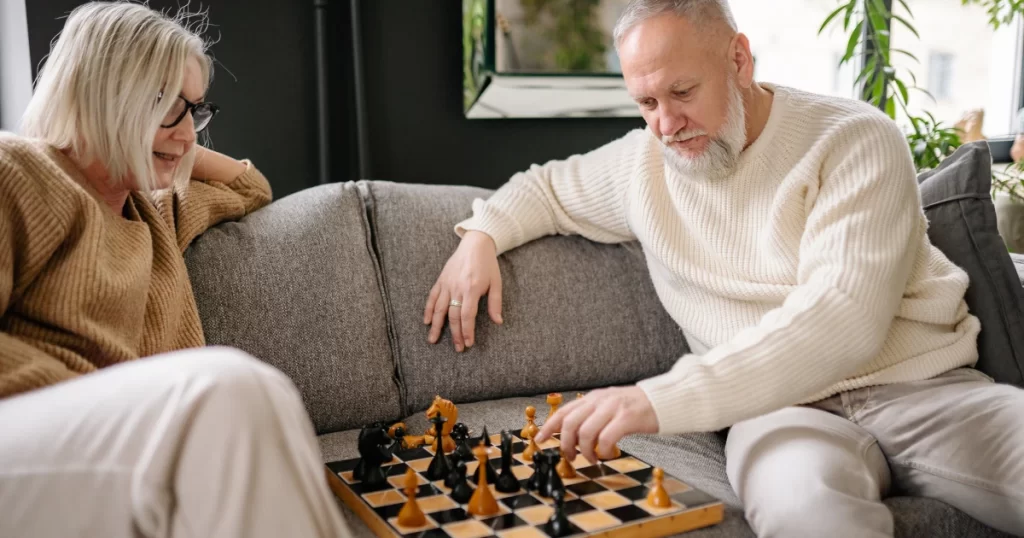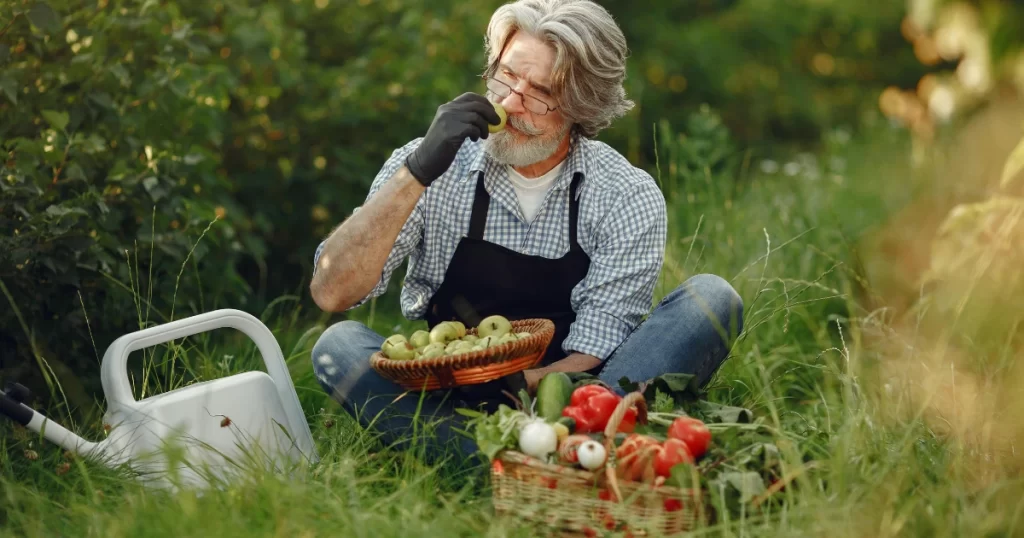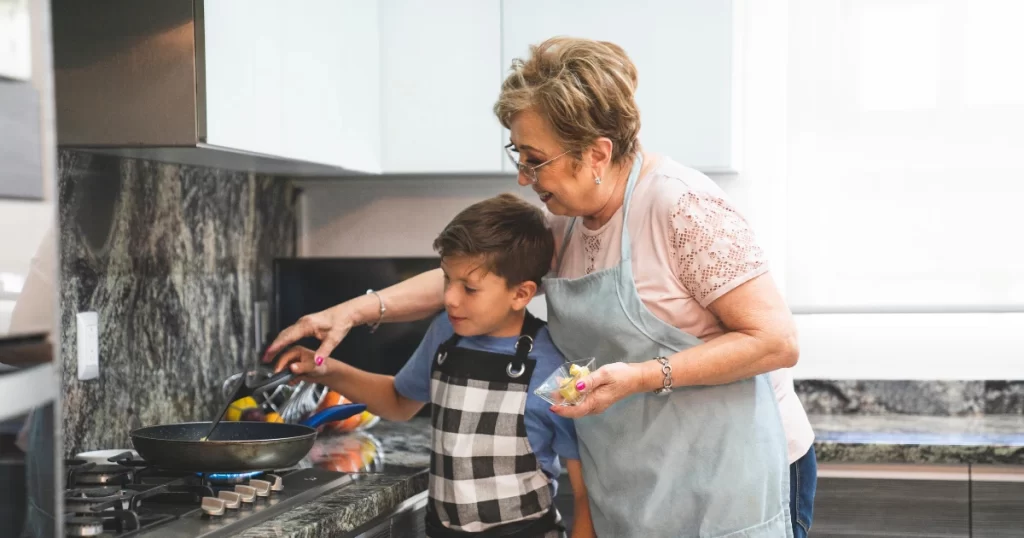Your 60s are a wonderful time to embrace new adventures, enjoy your freedom, and—just as importantly—keep your mind as sharp as ever.
The good news? There are so many enjoyable hobbies that can boost your cognitive health, help you stay socially connected, and bring a sense of purpose and fun to your golden years. Let’s explore the best hobbies for brain health in your 60s, so you can keep thriving, learning, and living life to the fullest.
Table of Contents
Why Hobbies Matter for Brain Health in Your 60s
You might be wondering, “Do hobbies really help my brain?” Absolutely! Research shows that staying mentally active is one of the best ways to support cognitive health for older adults.
When you try new things, solve problems, or even just socialize with others, you’re giving your brain a healthy workout. Plus, hobbies can reduce stress, lift your mood, and help you build meaningful connections—key ingredients for joyful aging.
1. Lifelong Learning: Classes, Courses, and Book Clubs

Never stop learning! Lifelong learning for seniors is a powerful way to keep your mind engaged. Consider joining a local book club, signing up for community college courses, or taking online classes on topics that interest you.
Whether it’s history, art, or technology, learning something new challenges your brain and keeps those memory muscles strong. Plus, book clubs and group classes offer a great way to meet new friends and enjoy social connection in retirement.
2. Puzzles, Games, and Brain Teasers

If you love a good challenge, puzzles and games are perfect for keeping your brain sharp in your 70s. Crosswords, Sudoku, chess, and card games all encourage problem-solving and strategic thinking.
Invite friends or family over for a game night, or join a local bridge or chess club. Not only will you have fun, but you’ll also be supporting your mental wellness and cognitive health.
3. Creative Hobbies: Art, Music, and Crafts

Creative activities are fantastic for brain health and emotional well-being. Try painting, drawing, or pottery to express yourself and stimulate your mind. Learning to play a musical instrument or joining a choir can also provide a wonderful mental workout.
Don’t forget crafts like knitting, quilting, or woodworking—these hobbies improve hand-eye coordination and give you a sense of accomplishment.
4. Learning New Languages

It’s never too late to pick up a new language! Studies show that language learning can help delay cognitive decline and improve memory.
Whether you use an app, take a class, or practice with a friend, learning a new language is a fun way to keep your mind engaged and open doors to new travel adventures or cultural activities for seniors.
5. Gardening and Nature Activities

Gardening isn’t just good for your body—it’s great for your brain, too. Planning your garden, remembering plant care routines, and enjoying time outdoors can all help keep your mind active.
If you’re not into gardening, consider birdwatching or joining a local nature club. These hobbies combine gentle movement, fresh air, and mental stimulation for a winning combination.
“Staying mentally active is just as important as physical exercise for overall wellness in your 70s.”
– Dr. Smith, Cognitive Health Specialist
6. Volunteering and Community Involvement

Giving back is a wonderful way to stay connected and keep your brain busy. Volunteer at your local library, museum, or senior center. Mentor young people, join a community board, or help organize senior community events.
These activities provide a sense of purpose, encourage lifelong learning, and help you build strong social connections.
7. Cooking and Baking

Trying new recipes, planning meals, and measuring ingredients all challenge your brain in different ways.
Cooking and baking are also great for multigenerational bonding—invite your grandkids or friends to join you in the kitchen for some fun and delicious learning.
8. Travel and Cultural Exploration

Exploring new places, even if it’s just a day trip, is a fantastic way to keep your mind sharp. Plan a visit to a museum, attend a cultural festival, or join a senior wellness retreat. Travel encourages you to learn, adapt, and connect with others—all key to healthy aging and travel.
Also Read: Why Exploring New Cultures Keeps Your Mind Young after 60s
Frequently Asked Questions (FAQs)
Q: Do hobbies really improve cognitive health in your 60s and 70s?
A: Yes. Engaging in mentally stimulating and social hobbies—like puzzles, learning new languages, and volunteering—helps reduce cognitive decline and boosts memory and executive function. Research shows that each new hobby you add lowers cognitive decline risk by about 8–11%. In other words, hobbies do matter for brain health in later life.
Q: Which hobbies are most effective for boosting memory and mental sharpness?
A: Top picks include:
- Puzzles & brain teasers (like crosswords and Sudoku) enhance attention, memory, and reasoning.
- Learning new languages delays cognitive decline and improves memory among seniors.
- Music & playing instruments stimulate phonemic fluency, processing speed, and overall cognition.
- Creative activities such as quilting or painting engage memory, motor skills, and social interaction.
Q: How often should a senior engage in these hobbies to see benefits?
A: Aim for at least 1 hour daily of mentally stimulating activity. Studies show older adults who engage daily in puzzles, reading, or creative crafts perform cognitively like people eight years younger.
Physical hobbies (gardening, dancing) done regularly also support brain health by boosting blood flow and neuroplasticity.
Q: Can physical hobbies like gardening or dancing improve mental wellness?
A: Absolutely. Gardening, dancing, and walking combine physical exercise with mental stimulation and stress reduction. These activities improve executive function and increase brain-derived neurotrophic factor (BDNF), which supports brain plasticity .
They also reduce loneliness—linked to cognitive decline—by fostering social connection.
Q: Is socializing important for brain‑boosting hobbies?
A: Yes. Social components—like book clubs, group classes, volunteer work, or community gardens—heighten the benefits. Social interactions boost dopamine and serotonin, reduce stress, and strengthen cognitive reserve.
Q: Does learning new skills later in life still help?
A: Definitely. Starting new hobbies—quilt, digital photography, juggling, learning VR or languages—even in your 60s or beyond improves processing speed, working memory, and cognitive flexibility.
Q: How do stress, sleep, and routine factor into brain health with hobbies?
A: Managing stress and ensuring quality sleep are integral. Mindful hobbies (knitting, gardening, painting), combined with 7–8 hours of sleep and routines, optimize brain function and reduce dementia risk.
Final Thoughts: Stay Curious, Stay Sharp
Your 70s are the perfect time to try new hobbies, meet new people, and keep your brain in top shape. Whether you’re learning, creating, volunteering, or exploring, every new experience supports your cognitive health and brings more joy to your golden years.
So go ahead—pick a hobby that excites you, and remember: staying curious is the secret to staying young at heart!
Don’t wait—pick a new hobby this week and see how it brightens your days and sharpens your mind!

